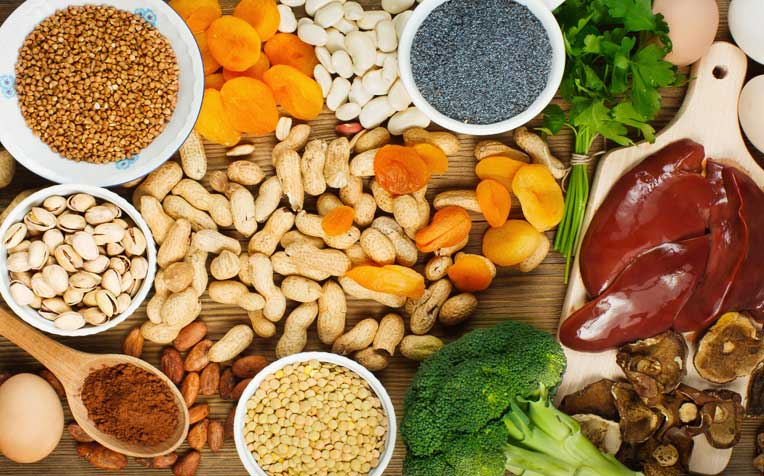
You can prevent iron-deficiency anaemia by consuming iron-rich foods such as fish, poultry, eggs, meat, peas, beans, lentils and potatoes.
Treatment for iron-deficiency anaemia
Depending on the severity of anaemia or iron deficiency, your doctor may recommend pure iron supplements or a daily iron-fortified multi-vitamin.
In women, if the cause of iron-deficiency anaemia is fibroids or heavy menstruation, tranexamic acid or hormone tablets may be prescribed to stop heavy menstrual bleeding.
If the cause is a peptic ulcer caused by Helicobacter pylori, a cocktail of powerful antibiotics can be prescribed by a specialist to eradicate the infection.
Surgery to remove growths such as fibroids, tumours or polyps may be necessary to stop iron-deficiency anaemia due to chronic blood loss from these growths.
Dietary iron vs iron supplements
Prevention is always better than cure. You can prevent iron-deficiency anaemia by consuming iron-rich foods such as fish, poultry, eggs, meat, peas, beans, lentils, and potatoes.
The human body doesn’t absorb vegetable sources of iron as efficiently as iron from an animal or chemical source. "Vegans and vegetarians can increase their intake of iron through iron-fortified cereals and cooked dry beans," says Dr Cassandra Chang, Senior ClinicalPharmacist, Pharmacy Department, Singapore General Hospital (SGH), a member of the SingHealth group.
If your doctor prescribes iron supplements, it is best to take them on an empty stomach to maximise absorption from the intestines into the body. However, in some people, iron supplements can cause side effects, such as indigestion, constipation, diarrhoea, nausea, and abdominal pain. If this occurs, take your iron supplements with food.
Iron supplements exist in several forms such as ferrous fumarate, ferrous sulphate and ferrous gluconate. These products provide different amounts of elemental ferrous iron, and the side-effect profiles may be different as well. If you experience side-effects with one ferrous supplement, you may wish to try a different type. Consult your pharmacist or doctor for advice on switching supplements.
Tips to improve iron absorption:
DON’Ts
- Avoid drinking tea at the same time as iron-rich foods or iron supplements, as tea reduces iron absorption. Tea can be consumed 2 hours after taking iron supplements.
- Avoid taking iron supplements at the same time as calcium-rich foods such as milk, yogurt, cheese and whole-grain cereals as they reduce iron absorption. Avoid these foods within 1 hour before and 2 hours after taking iron supplements.
- Iron may darken your stools. Do not worry if this occurs. However, if it causes severe constipation you should inform your doctor.
- Iron may interfere with some other medications such as antibiotics and thyroxine. Speak to your pharmacist.
DOs
- Vitamin C-rich foods increase iron absorption. Some rich sources of vitamin C include oranges, grapefruit, papaya, spinach, broccoli and dark green leafy vegetables.
Contributed by















 Get it on Google Play
Get it on Google Play